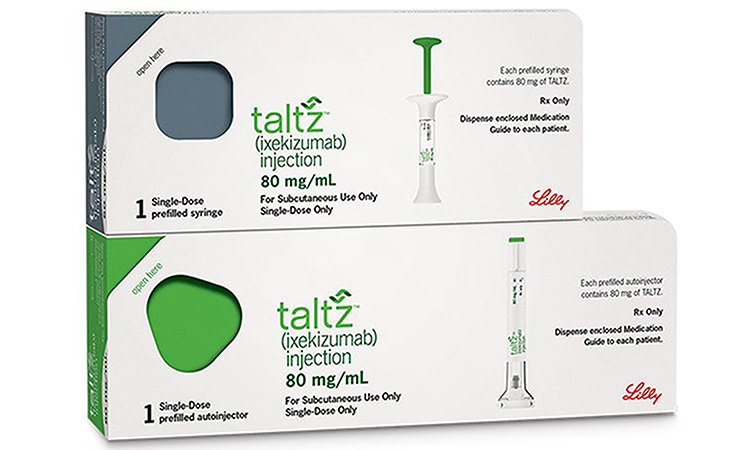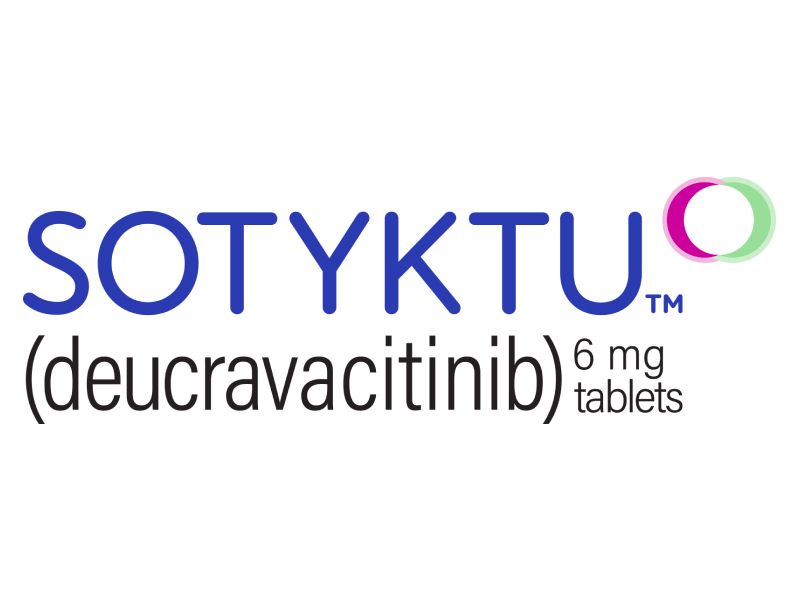Taltz (ixekizumab) vs Sotyktu (deucravacitinib)
Taltz (ixekizumab) vs Sotyktu (deucravacitinib)
Taltz (ixekizumab) is a monoclonal antibody that targets interleukin-17A (IL-17A), a molecule that plays a role in inflammation and is used to treat conditions like moderate-to-severe plaque psoriasis, active psoriatic arthritis, and ankylosing spondylitis. Sotyktu (deucravacitinib), on the other hand, is a small molecule oral medication that inhibits the activity of TYK2, a kinase involved in the signaling pathways of several pro-inflammatory cytokines, and is approved for the treatment of moderate-to-severe plaque psoriasis. When deciding between the two, it is important to consider factors such as the route of administration (Taltz is an injectable medication, while Sotyktu is taken orally), the specific condition being treated, and the patient's medical history and potential for side effects.
Difference between Taltz and Sotyktu
| Metric | Taltz (ixekizumab) | Sotyktu (deucravacitinib) |
|---|---|---|
| Generic name | Ixekizumab | Deucravacitinib |
| Indications | Plaque psoriasis, Psoriatic arthritis, Ankylosing spondylitis | Plaque psoriasis |
| Mechanism of action | Interleukin-17A antagonist | Tyrosine kinase 2 (TYK2) inhibitor |
| Brand names | Taltz | Sotyktu |
| Administrative route | Subcutaneous injection | Oral |
| Side effects | Infections, Injection site reactions, Upper respiratory tract infections, Nausea | Upper respiratory tract infections, Headache, Diarrhea, Nausea |
| Contraindications | Hypersensitivity to ixekizumab or any of the excipients | Hypersensitivity to deucravacitinib or any of the excipients |
| Drug class | Monoclonal antibody | Small molecule kinase inhibitor |
| Manufacturer | Eli Lilly and Company | Bristol Myers Squibb |
Efficacy
Efficacy of Taltz (Ixekizumab) for Psoriasis
Taltz (ixekizumab) is a biologic medication that has been approved for the treatment of moderate to severe plaque psoriasis in adults who are candidates for systemic therapy or phototherapy. Ixekizumab is a high-affinity monoclonal antibody that selectively targets interleukin-17A (IL-17A), a key cytokine involved in the pathogenesis of psoriasis. Clinical trials have demonstrated that Taltz can lead to significant skin clearance in many patients. In these studies, the primary endpoint is often measured by the proportion of patients achieving a 75% reduction in the Psoriasis Area and Severity Index (PASI 75) score. Taltz has shown efficacy in achieving PASI 75 in a majority of patients, with some achieving PASI 90 or even PASI 100, indicating near-complete or complete clearance of psoriatic lesions.
Efficacy of Sotyktu (Deucravacitinib) for Psoriasis
Sotyktu (deucravacitinib) is a newer oral medication that has shown promise in the treatment of moderate to severe plaque psoriasis. It is a selective tyrosine kinase 2 (TYK2) inhibitor that modulates the immune response implicated in psoriasis. Unlike traditional systemic treatments, Sotyktu targets a specific intracellular signaling pathway, which may lead to fewer off-target effects. In clinical trials, Sotyktu has been effective in reducing the severity of psoriatic plaques. The efficacy endpoints in these studies typically include the percentage of patients achieving PASI 75, with many participants also reaching higher levels of skin clearance such as PASI 90. The data suggest that Sotyktu may offer a favorable balance between efficacy and safety for patients with psoriasis.
Comparison of Efficacy in Psoriasis Treatment
When comparing the efficacy of Taltz and Sotyktu for the treatment of psoriasis, it is important to consider the differences in their modes of administration and action. Taltz, as an injectable biologic, has a well-established efficacy profile and has been used in clinical practice for several years. Sotyktu, being an oral medication, provides a novel approach to treatment and may be preferred by patients who are averse to injections. Both medications have shown high levels of efficacy in achieving significant skin clearance, but direct head-to-head comparisons in clinical trials would be necessary to determine if one is superior to the other in terms of efficacy.
Conclusion
In conclusion, both Taltz (ixekizumab) and Sotyktu (deucravacitinib) have demonstrated efficacy in the treatment of moderate to severe plaque psoriasis. Taltz, targeting IL-17A, and Sotyktu, inhibiting TYK2, represent different therapeutic approaches, both resulting in significant improvement in psoriatic symptoms for many patients. The choice between these medications may depend on individual patient preferences, tolerance, and specific clinical scenarios. As with any medication, the efficacy must be balanced with safety considerations, and the choice of treatment should be made in collaboration with a healthcare provider.
Regulatory Agency Approvals
Taltz
-
European Medical Agency (EMA), European Union

-
Food and Drug Administration (FDA), USA

-
Health Canada

-
Therapeutic Goods Administration (TGA), Australia

Sotyktu
-
Food and Drug Administration (FDA), USA

Access Taltz or Sotyktu today
If Taltz or Sotyktu are not approved or available in your country (e.g. due to supply issues), you can access them via Everyone.org.
How it works

Make an enquiry
Choose the medicine you want to buy, answer a couple of questions, and upload your prescription to speed things up. We’ll get back to you within 24 hours.


Make an enquiry
Choose the medicine you want to buy, answer a couple of questions, and upload your prescription to speed things up. We’ll get back to you within 24 hours.


Breeze through the paperwork
We'll guide you through the required documents for importing unapproved medicine, ensuring you have all the necessary information.


Get a personalized quote
We’ll prepare a quote for you, including medicine costs and any shipping, administrative, or import fees that may apply.


Receive your medicine
Accept the quote and we’ll handle the rest - sourcing and safely delivering your medicine.

Some text on this page has been automatically generated. Speak to your physician before you start a new treatment or medication.
Let's talk
If you have any questions, call us or send us a message through WhatsApp or email:
Contact us




